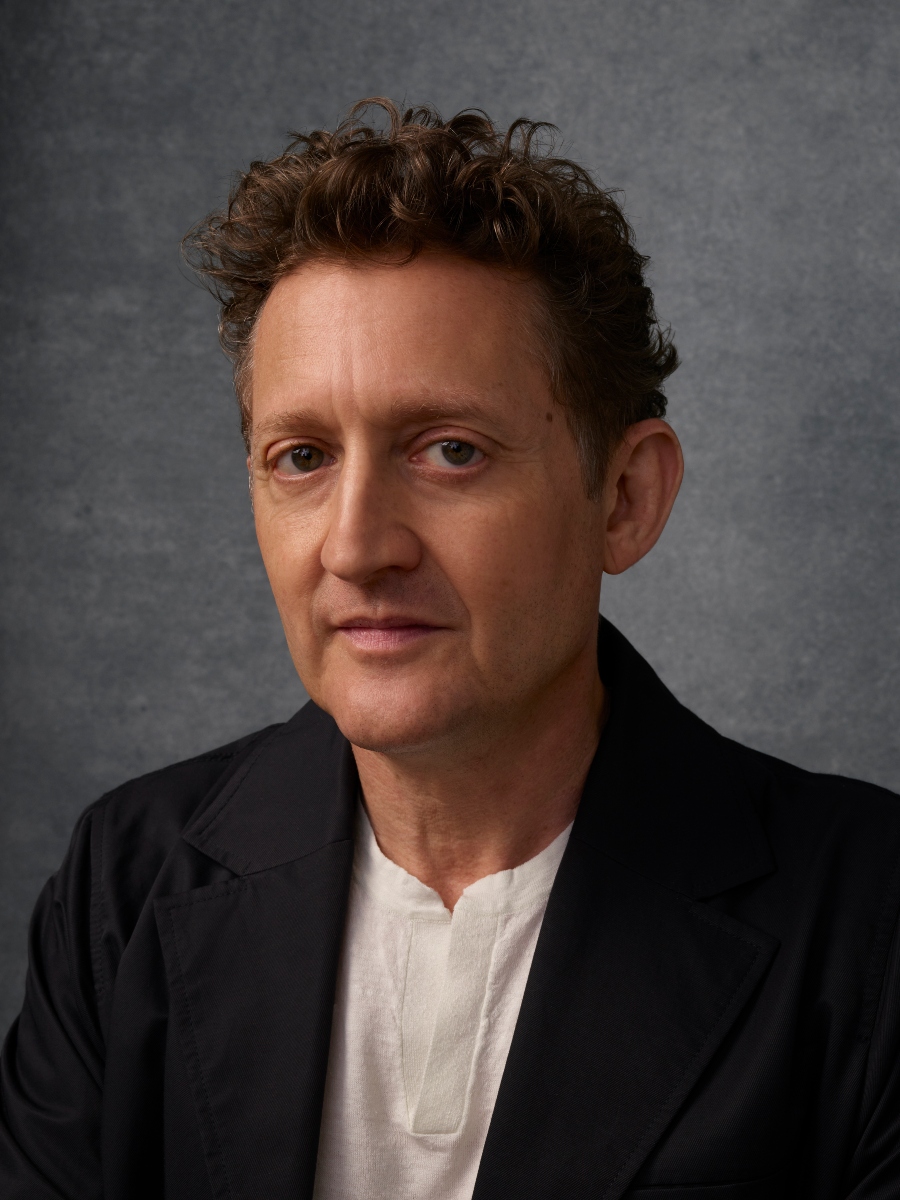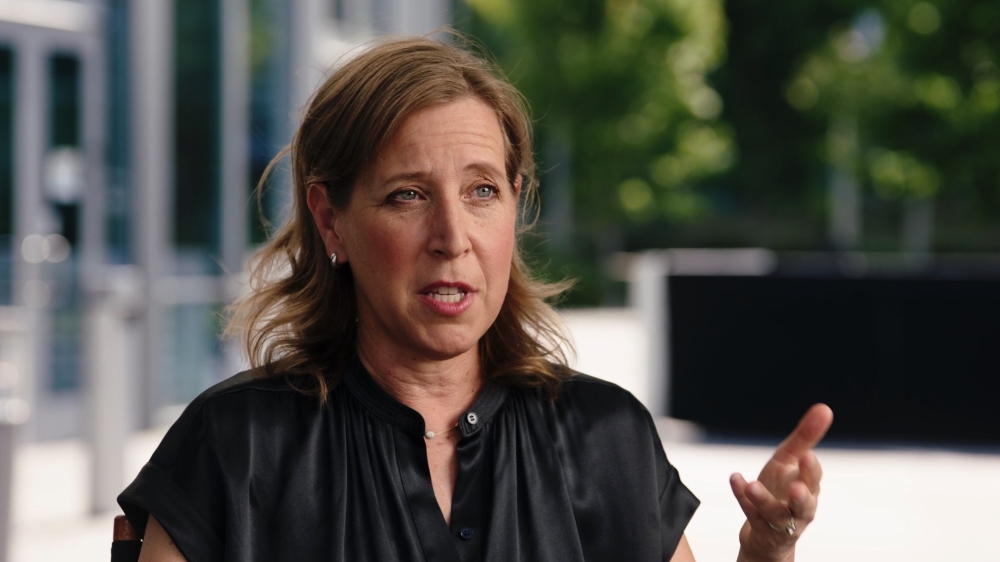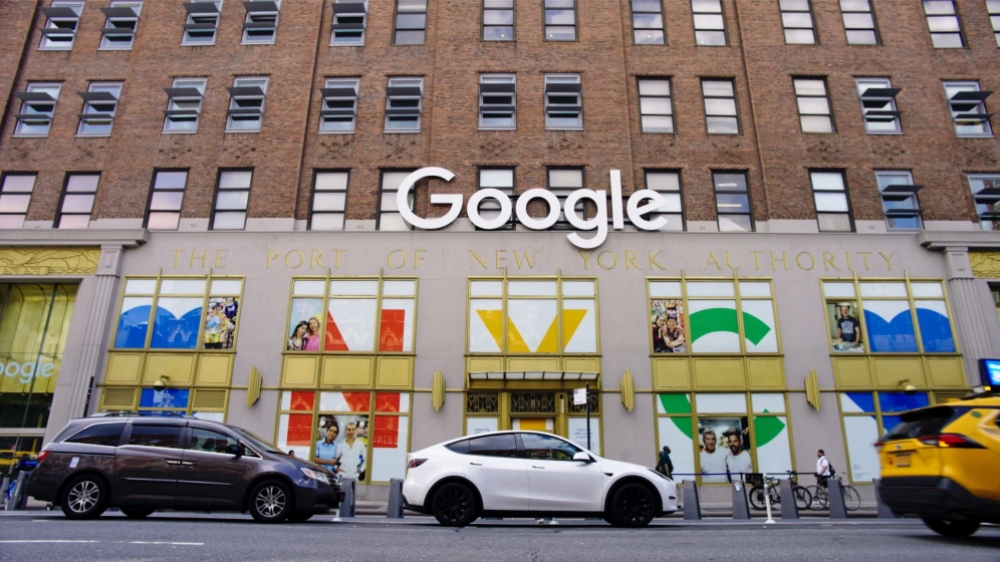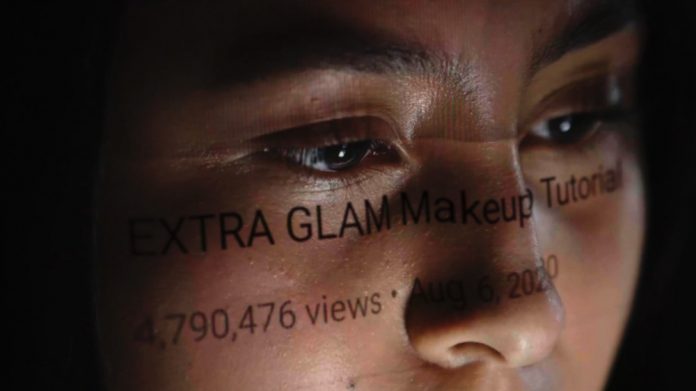It feels like YouTube has been in the social networking sphere forever, but in actuality, the online video-sharing company was founded on Feb. 14, 2005, by Steve Chen, Jawed Karim, and Chad Hurley. Just a year later, the startup was acquired by Google for a staggering $1.65 billion and remains a source of worldwide joy and sometimes even agony, which is explored in the new feature documentary The YouTube Effect.
Directed by Alex Winter, the Bill & Ted actor-turned-documentary filmmaker behind Showbiz Kids, The Panama Papers, Zappa, and produced by Gale Anne Hurd (The Terminator and The Walking Dead), The YouTube Effect goes behind the screen and delves deep, turning the camera on Chen, former YouTube CEO Susan Wojcicki, and a handful of YouTube creators — some of them alt-right radicals — who have become stars in their own right.
As YouTube insiders, they share an eye-opening view into the platform has transformed over the years, growing from its humble origins to become a staple in our everyday lives, not that it always serves as a healthy outlet to express ourselves. The last time YouTube’s daily audience of active users was measured, it was 360 million strong.
Above the Line recently spoke with Alex Winter via Zoom video from Los Angeles, where he took a break from the July 4th holiday weekend to discuss the making of this provocative and informative documentary. Holding up a mirror to society, Winter questions both sides regarding the effect the video platform has had on both subscribers and creators.
Winter also discussed what prompted his interest in going down the YouTube rabbit hole, which began several years ago, and he revealed how YouTube was responsible for delivering much of the hate-filled rhetoric surrounding the January 6 resurrection. The director even shared his own brush with online harassment and where he sees the future of social media heading.

Above the Line: Take me back to the beginning, Alex. What inspired you to examine YouTube in this documentary?
Alex Winter: Well, I mean, I’ve been around the internet for a long time. I’ve had an interest in the rise of internet communities going back to the pre-web days of the ’80s when I first got on to the BBS and Usenet worlds, where people were beginning to congregate by the thousands. Napster saw a hundred million people get together online, which was a huge leap forward. Then, fast forward 20 years, and you’ve got billions of views on a constant basis on a platform like YouTube, which is without peer, in terms of its scale.
Google, I think, is the number one searched website, and YouTube is the number two, and they’re both owned by the same company. So it felt like a very good time to look at this with more scrutiny, and Gale Anne Hurd, the producer, contacted me about working with her on this story. It felt like the right time to examine a company that I felt had avoided greater scrutiny at the expense of some of the smaller companies in terms of their reach, like Meta and Twitter.
ATL: Interesting. Can you walk me through how you found your subjects? Google must have been a great resource…
Winter: Yes, they are a great resource. YouTube is a great resource. I’ve been around this space for a very long time. I know a lot of people in it. I knew the YouTube creators of Smosh, Anthony Padilla and Ian Hecox, already. I’ve worked with them before, and I know a lot of influencers who came up from the very, very early days of YouTube. I also know a lot of people at Google, including people who were even behind the financing of Google. So I was using relationships that I have, and those folks know that while I try to be sort of clear-eyed and look 360 degrees at all of these issues, I’m not a tech hater.
ATL: What is your stance on technology as a whole?
Winter: I think my perspective on technology is that it’s really just an advancement of human society. It’s not something separate from human society. I don’t really look at it as something that could possibly be all good or all bad. It’s the growth of what society already is. So I had a lot of access, and that allowed me to build an ensemble cast, which is what I like to do with my documentaries — kind of tell human stories about a very small group of people and a very giant issue.
ATL: When you first reached out to Steve Chen, who was one of the founders of YouTube, did you also want to meet with the co-founders as well?
Winter: You don’t want a cluttered playing field, so that’s why I didn’t go after more founders. I think the only people I went after [who] I didn’t get were a couple more engineers from Google and YouTube who just didn’t want to go on record, probably for fear of retribution, but having [former YouTube CEO] Susan Wojcicki and having Steve was a goldmine, so I didn’t really feel a huge urge to go further than that.

ATL: You definitely got a lot of warts-and-all kinds of responses. I mean, I was shocked at some of the things the former CEO of YouTube said.
Winter: Yeah, Susan Wojcicki is a very smart person. She’s been around this stuff her whole life, and she was one of the people who helped put Google together, but she also made the initial Google sale of YouTube back in 2006. So I knew she’d have great things to say. These are people who have come up with the rise of the internet, much less the rise of the web. So they’ve seen it all, and they’re also in the same predicament that the rest of us are in. I think [they’re] also trying to figure out a way forward that works, so you don’t throw out the baby with the bath water. So you keep all the good things that Google and YouTube are doing while addressing the things that are causing harm.
ATL: Talk about some of those things that you discovered, such as the more harmful side of YouTube.
Winter: I was very aware that it had a lot to do with the rise of the alt-right and white supremacist terrorism, which is probably the biggest threat we face in the world right now. It’s going to get worse, I fear, over the next couple of years. I think technology’s going to play a role in it getting worse, sadly. So I wanted to dig into that as well as, obviously, the positive. It’s kind of ironic that YouTube is at once, I would say, largely responsible for the diversity drives that we saw in media that then got picked up on by Hollywood.
A lot of that really began with YouTube, which was openly courting and promoting people of all ethnicities, people of all genders and sexualities, people all over the world, and people without voices in countries all over the world, and began to democratize culture in that way. A lot of that started with YouTube. At the same time, the company is also monetizing the rise of hate speech, which is very radical and bigoted, and inciting content. So that was something I wanted to look into.
ATL: How do you think YouTube played a part in delivering hate speech?
Winter: The negatives around the parasocial aspects and the monetization of hate speech were far worse than I understood. I knew that YouTube played a part in the January 6th insurrection. I was very aware that it was really responsible for the Christ Church shooting, but I did not realize that YouTube was the number one driver of the January 6th insurrection in terms of disseminating information and motivating and coordinating that attack. So that’s, you know, a pretty important statistic. And, um, yeah, once I discovered that, it kind of forced me to pull on the thread of that sweater a little harder than I might have otherwise.

ATL: Have you ever been a victim of harassment on social media?
Winter: I wouldn’t consider myself a victim of online harassment, but I have often been a target, especially once I became outwardly critical of the alt-right during the 2016 election. In 2019, in the lead-up to the 2020 election, I was targeted by neo-Nazis who swarmed my Twitter account and made threats by the hundreds for several days. I turned those accounts over to the FBI.
ATL: That is insane! What other surprises sort of led you down that rabbit hole — because when you do a documentary, things tend to change, right?
Winter: Yes, completely. I do a lot of writing on these docs, and I have a kind of script or structure going in, knowing that that’s going to get thrown out and rewritten constantly. That’s kind of the point — your editor is really your co-author on a documentary. Wes Cadwell, my editor, and I were constantly reorienting and looking at things to see where they were going and how they needed to be revised. So the story took a lot of turns, but I’m very transparent with my subjects, including with Google and the YouTube folks. I sort of let people know that I don’t have an agenda against this company. It’s done a lot of good, but I certainly intend to travel down any road that it takes me.
ATL: So what was the big turn that happened while you were filming?
Winter: I think that while we were filming, going into the 2020 election, the rise of COVID misinformation, the rise of hate speech, the rise of QAnon, the rise of violence that was being incited by far-right and white supremacist terrorists, and the amount to which that was being monetized, took me in a direction I had always been suspicious of — that the algorithm is responsible for everything.
It seems to me like kind of a cop-out if you have this kind of unknowable thing that’s evil, then you don’t really have to do anything. You just say, “Oh, it’s the algorithm,” and it doesn’t require any action. I’m always resistant to any language that removes the ability for humans to just take basic action against something that’s going on. Like with AI right now. People are like, “AI this, AI that. AI’s going to end the world,” and then you just want to pull a blanket over your head and not do anything.
AI doesn’t even mean anything anymore. It’s not even used accurately for the most part. And the algorithm, I would say, has become a fairly meaningless buzzword. So I really wanted to dig into what was actually driving this kind of harm because I didn’t believe it was algorithmic, and I don’t believe that it’s largely a technology issue.

BTL: Also, with AI, there is the fear of this loss of humanity, especially with ChatBot taking over how we create content.
Winter: I think that AI is causing harm in different ways than it’s generally talked about. I don’t think it’s Skynet; I don’t think it’s going to end civilization as we know it. I think a lot of the rhetoric around that is agenda-based and harmful. I think that AI will take jobs away in seemingly mundane but very destructive ways. It’s very good at organizing. It’ll probably replace a lot of lawyers. It’ll replace a lot of rank-and-file work. Actors, directors, writers, assistant directors, people whose job it is to schedule, and a lot of the people that you talk to in customer service are going to be gone and replaced with AI. So I think there is going to be a broad base of destruction that comes from it that is serious and not to be minimized. I just don’t think that AI is going to suddenly sprout a brain and turn off the human race. I think that’s kind of ludicrous.
ATL: Would you also say that YouTube was a saving grace during COVID?
Winter: I learned a lot about the power of parasocial interaction, kind of like what you and I are having right now, right? I’m looking into a webcam. You’re looking back at me through your webcam. That’s obviously an extremely powerful tool, and I don’t think people quite understand the power of that, both for good and in terms of connecting with your fellow humans. So that’s what happened to me in 2019 as we moved into 2020, and we were in the middle of COVID.
Everyone was online all the time. Everybody’s relationships were parasocial, whether it was my child and his school teacher; everything was just a black box webcam, right? Then it really began to dawn on me how much power YouTube had and why, and that’s when it really hit me that this wasn’t an algorithmic issue at all. This was almost entirely a parasocial issue and then a business issue in terms of monetizing that power.
ATL: The other thing in the documentary that I found super disturbing was when you were talking about this adorable child and his parents, and then you get the algorithms of all these nasty videos about kids.
Winter: Yeah, that was terrible. To their credit, YouTube and Google did a lot of really good work where there were algorithmic issues. The recommended algorithm was a bit of a train wreck when it was introduced. I think they’ve done an enormous amount of good there. I don’t think that you’re likely, in this day and age, to search for how to put AAA batteries into your radio and then immediately get rabbit-holed into these dark pathways of garbage. It’s actually hard to make YouTube do that to you anymore. The same is true for the children’s area. For the most part, they’ve done a lot of good, so that’s why I really focus on the parasocial aspects, which I think are very significant, and the content moderation issues, which I think could be far better than what they’re doing.

ATL: How can these social media companies affect content?
Winter: I don’t believe they’re easy. I think Susan Wojcicki is right when she says that you can’t just abolish Section 230 (the Communications Decency Act). She’s not being disingenuous. It would be a disaster for companies much smaller than Google, [which] would have a less hard time course-correcting than your average mom-and-pop website. So it’s not easy. I’m not flippant about it, but I think they could be doing more than they’re doing.
ATL: How would you describe your YouTube habits? What do you get from the channel?
Winter: It’s vast. YouTube is all of our media, all of our news, and all of the human collection of any form of historical information. It’s DIY, it’s movies, entertainment, and music, and it’s social media and search, right? It’s almost an undefinable giant. I use it for all of the things I just described, which is a lot of stuff. I mean, we’re on it all day long, to some degree or another. I use it to keep my dogs relaxed when I leave the house, right? I go right to YouTube for the “Relax My Dog” videos, and that keeps my dogs okay. I’ve got three boys, two of whom are grown and out of the house. They’re all on it for everything — all their music and media. It’s really the largest community that we have online at the moment, and it’s connecting billions of people together. I’m using it the same way that everybody else is. It is kind of an unavoidable and indispensable tool.
ATL: So in light of that, what were your takeaways and what do you hope people will discover from watching The YouTube Effect?
Winter: My takeaways are immeasurable because I was on this film for years, and every day I was having my mind blown to one degree or another. My takeaway is that I think things are going to get worse before they get better. My long-term takeaway is optimistic because I think that people at Google are actually good people, and I think that the government is beginning to wake up to how these technologies work.
But I think that Google won’t police itself. So however good they are, their shareholders really run the company, and if they go to their shareholders and say, “We’re about to make way less profit because we’re going to turn off all of these hate-filled channels,” they would be frog-marched out of their building by their board. So that’s not going to happen.
I think the government, while waking up to regulation and antitrust law, is still very behind and ignorant of how these technologies work. Sometimes you talk to people in Congress and they get it, and a lot of the time you talk to people in Congress and it’s kind of terrifying how much they don’t get it. I think the kind of younger people coming up in Congress will help, but I think the long-term play is really good, and the short-term play going into the 2024 election is scary.
I think it’s going to be very bumpy indeed, so I think maybe the takeaway for other people is to just understand that technology is not something that’s run by an algorithm that’s separate from humanity, separate from society, that you can just turn off or put down. It is a reflection of where society is right now, so you really don’t have a choice but to get involved.
The YouTube Effect is now playing in select theaters, including at Vidiots. Check your local listings.



